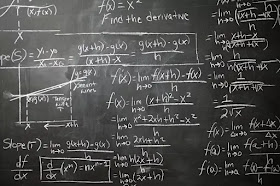One of the points of "basement science" is the notion that the everyday world is still a fascinating place, and that there are a million things still to be discovered using simple equipment and materials. We have been brainwashed into thinking that everyday things have all been figured out - that is far from the truth, and hopefully this site and the research questions it provides can help convince us that there is always something new to learn.
Here is one other way of thinking about this. This is based on a lab I have all my physics classes do during mechanics, in order to help them see how little things we can do with household materials can connect to MUCH BIGGER things the average person would never realize.
How can we use a piece of string to determine the mass of the planet?!?!?!? Sounds ridiculous, right?!
For a physics class studying anything about gravity, this is a simple and quick experiment that will allow students to determine the acceleration of gravity, g, which is typically 9.8 m/s^2, and is actually the measure of the strength of the gravitational field of the earth, using nothing but a simple pendulum!
What's more, if you know g, then you can also calculate the mass of the entire planet!! With a piece of string and a little weight tied to the end that can swing!
Check out this lab. The only materials includes a piece of string and something to tie at the end, perhaps a small stick, or paperclips or a washer. Also a ruler and a way to measure the time it takes the pendulum to swing once back and forth. That time is called the period of the pendulum. The lab gives the formula for the period of the pendulum, and by inserting the length and period time, one can calculate the acceleration due to gravity, g.
But then we can use the notion from Newton's law of gravity, that g = GM/R^2, where G is the gravitational constant and R is the radius of the earth (given in the lab), and M is the mass of the earth that a student can solve for. Students can get good results to within a few percent if they are careful with their time measurement of the period.
Think about this sort of approach. Think about something from one of your science classes, and can you find something easily done in the lab that has dependencies on something out of the ordinary? This can open the door to really interesting experiments and research questions, all the while we use really simple equipment and materials!
